Organ Donation Decisions Causing Heartache for Families; Raising Awareness for Organ Donation Necessary
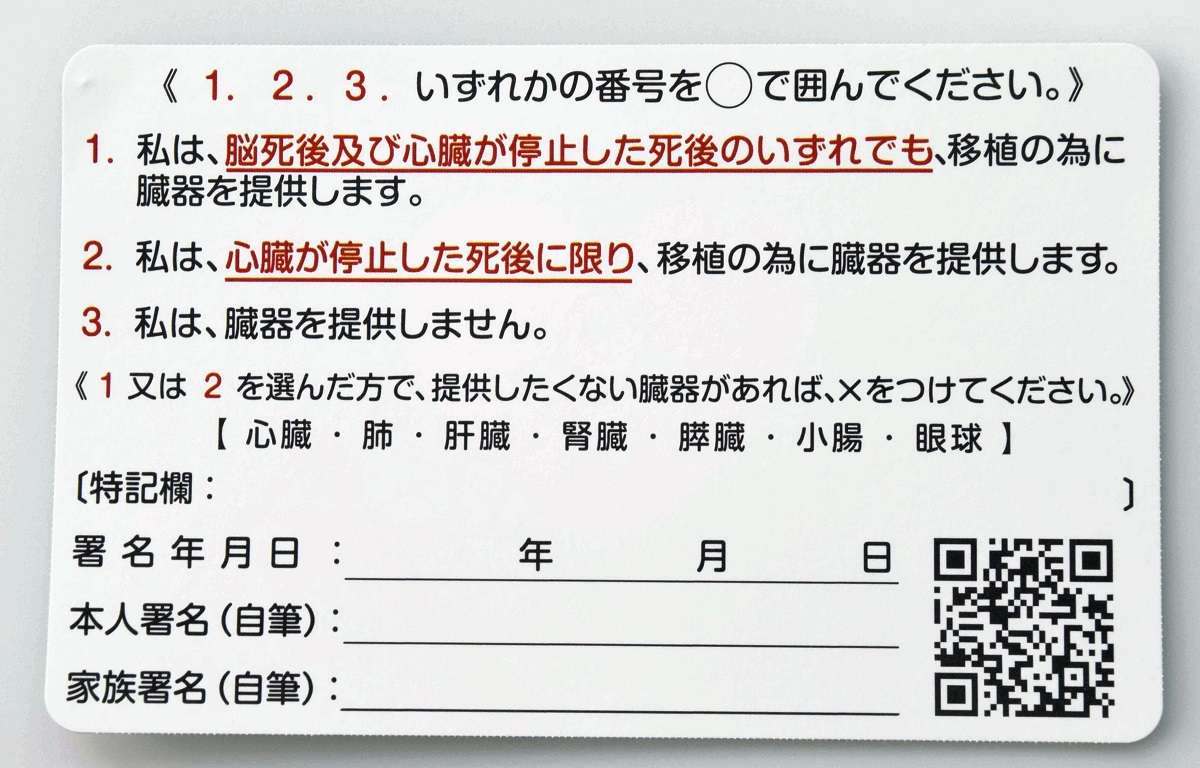
An organ donor card that is distributed for free at medical institutions in Japan
7:00 JST, November 23, 2023
The number of organ donations has been on an upward trend in Japan lately — organ donations from brain-dead donors reached the 1,000 mark in October since the Organ Transplant Law was implemented in 1997.
Even so, this number is far lower than in other countries. Being able to make a written declaration of intent regarding organ donation on driver’s licenses, My Number Cards and other documents is believed to be the key to increasing the number of organ donors.
Burden on families
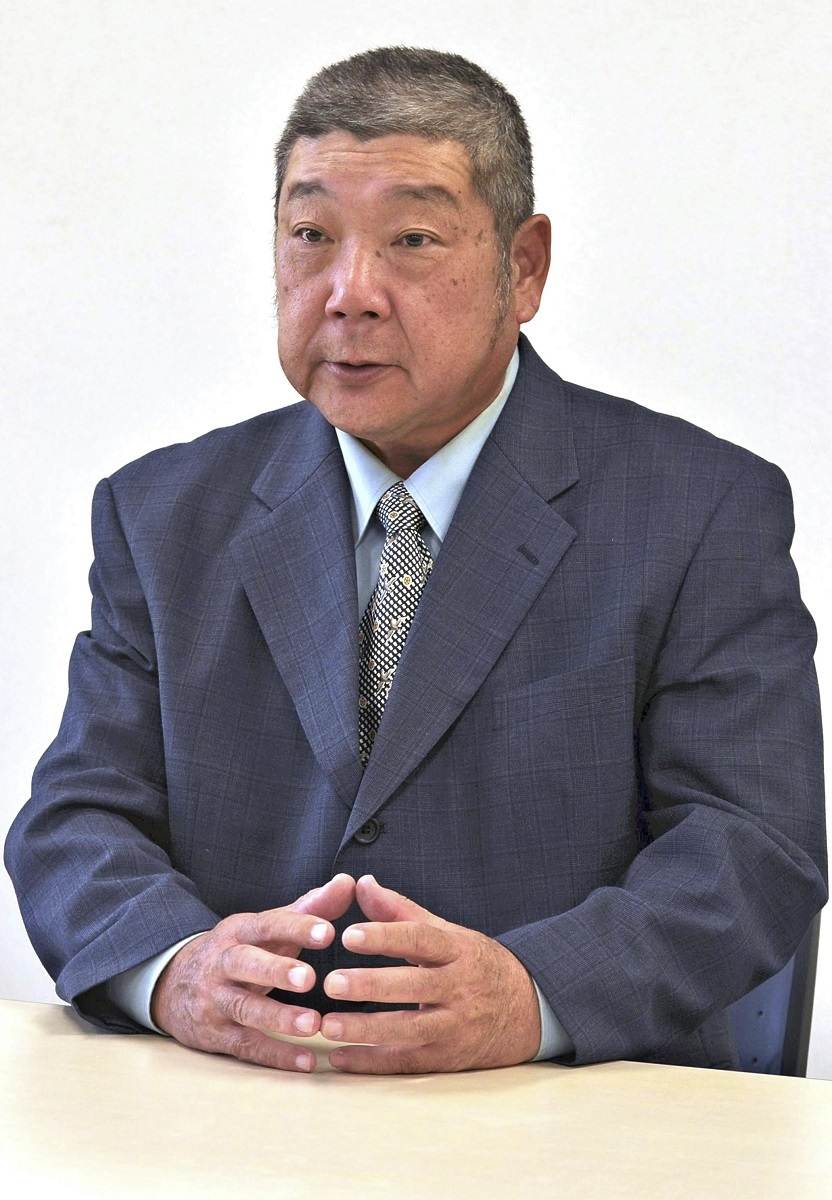
Hideo Yamano
“If he had made a written declaration of intent, I would have been able to agree to donate his organs more easily,” Hideo Yamano, a 64-year-old former teacher, said. About 10 years ago, he consented to the donation of organs of his older brother, Naoki, then 60.
Naoki was single and lived with Yamano’s family in western Japan. One day, while riding his bike on the way home from shopping, he was hit by a bus. He hit his head hard and fell into critical condition. The following day, an organ transplant coordinator at the hospital discussed the options for organ donation with Yamano.
Naoki had not expressed his views on organ donation before the accident, so Yamano had no idea of his brother’s thoughts on the matter. His parents had already passed away and he had no one to ask for advice. “I was not sure whether I should have the choice to allow the body of another person to be hurt, even if the person was my brother,” Yamano said. He thought about what to do for half a day.
What came to his mind at that time was an image from a TV program he had watched. In the program, children who received organ transplants were actively running around at a sports festival. Yamano thought, “My brother would not mind if he could make someone healthy, like those children.” Then he decided to agree to the donation of his brother’s organs.
Yamano feels that he could have made the decision more easily if his brother had expressed his views. Now he talks about his experience at lectures, emphasizing that declaring one’s views on organ donation will help reduce the burden on family members.
Survey of family members
When the Organ Transplant Law was implemented in October 1997, organ donation from a brain-dead donor required a written declaration of intent from the donor and the number of organ donations remained low — less than 20 cases a year. The law was revised in 2010 to allow for organ donations with the consent of family members of patients. As a result, the number of organ donations increased. Last year, there were 93 organ donations in Japan and 77 (83%) were conducted with the consent of family members.
However, the diagnosis of brain death is conducted only after family members of the patient have agreed to organ donation. Since the diagnosis determines the “death” of the patient, it has been pointed out that the choice on whether to give consent could put a heavy psychological burden on family members.
According to a survey conducted by the Japan Organ Transplant Network (JOT) of about 200 family members of donors in 2021, 87% of respondents said they were satisfied with their decision to agree to organ donation. However, 40% said they had experienced, or were experiencing, trouble after donating organs of their family members, with many citing emotional problems as a reason. One respondent was cited as saying, “I am not sure if it was the right thing to make the decision on my own.”
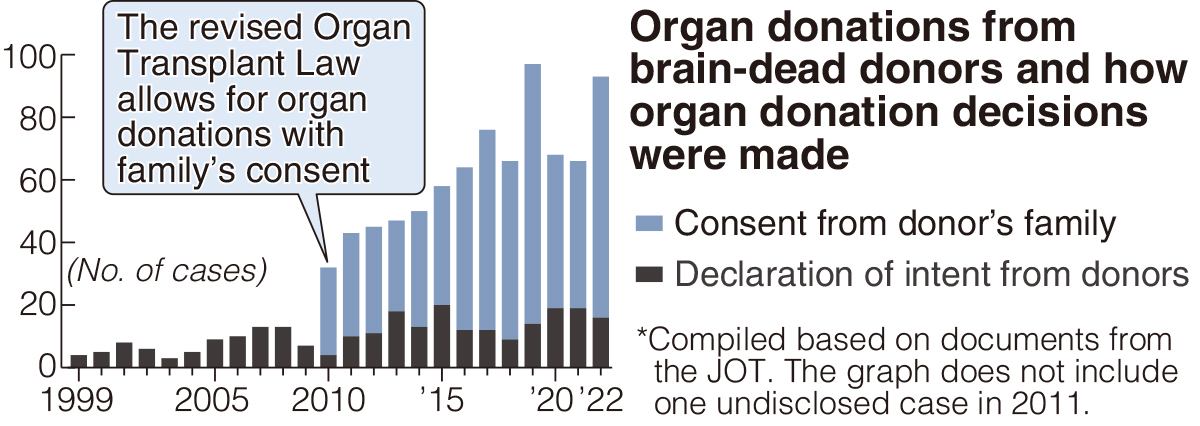
Raising awareness key
With the aim of increasing the number of people who have made a written declaration on organ donation, the Health, Labor and Welfare Ministry and the JOT have made various efforts such as distributing organ donor cards to municipalities and putting up posters at stations. However, it is difficult to say that these efforts have successfully raised the awareness of the public.
In a survey conducted by the Cabinet Office in 2021 of 3,000 people aged 18 and older, only 10.2% of respondents had made a declaration on whether to donate their organs, down from 12.6% in a survey of the same kind in 2013.
Yoko Uryuhara, a professor at Doshisha University who is familiar with issues related to organ donation, said: “Unless awareness-raising activities are targeted and leave an impression, they will not encourage people to decide to become organ donors. It is important for the government and the JOT to make more efforts than ever and cooperate with various media to continue to try to raise awareness of the issue among a wider range of people.”
Ordinary life appreciated
Organ transplant recipients live with a feeling of gratitude toward their donors.
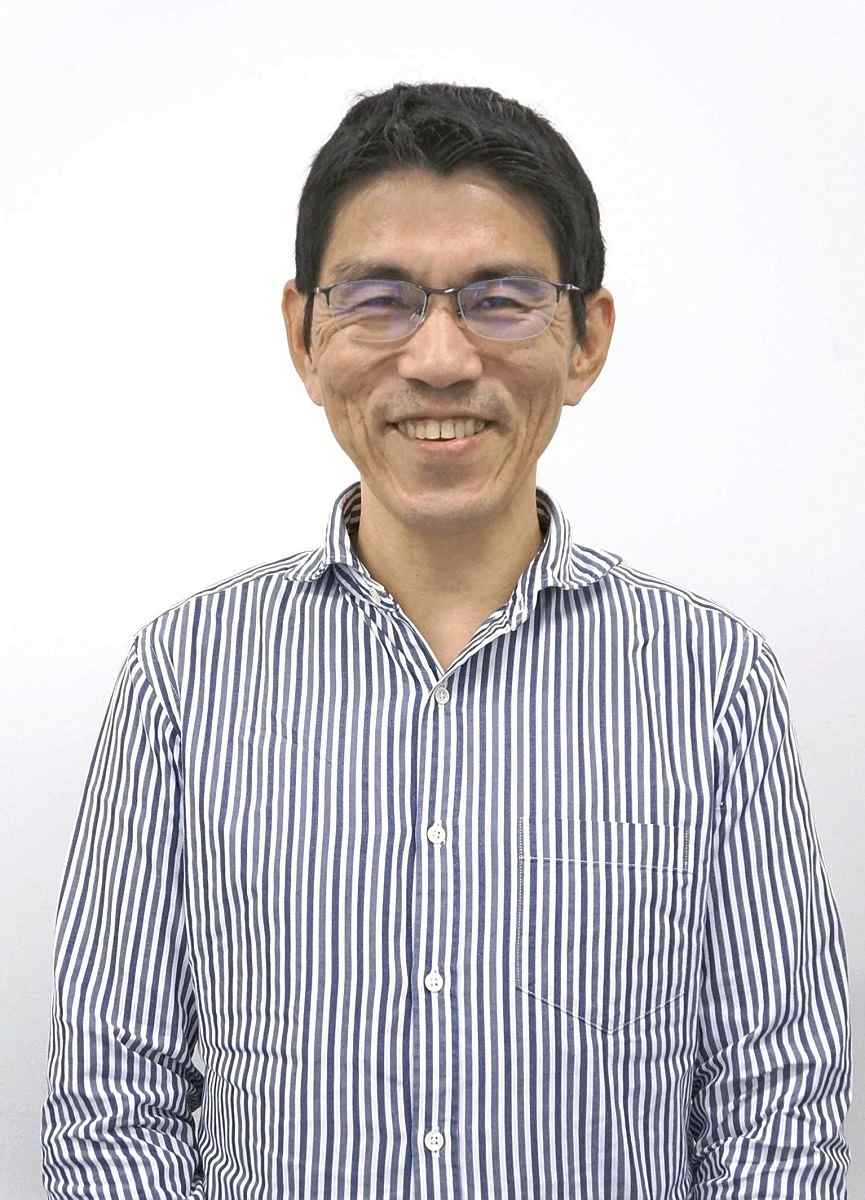
Katsuya Tahara
Katsuya Tahara, a 43-year-old company employee in Hamamatsu, received a liver transplant several years ago. He had congenital biliary atresia, a condition in which the bile ducts are narrower than normal or even blocked. His hepatic condition deteriorated and he was forced to take a leave of absence from work due to fatigue and other complications.
About eight months after he registered to the JOT, his doctor told him that they had found a donor. That night, he could not sleep and had such thoughts as: “What sort of person was the donor?” “What is the donor’s family feeling right now?” and “Should I really receive the organ?”
The organ transplant was conducted the following day and was successful. Now, he takes immunosuppressant medication in the morning and at night, but is otherwise able to lead a normal life. He can walk around all day during a family trip and even run a five kilometer race.
“I feel how happy I am to be able to lead an ordinary life and I really appreciate my donor. My life was saved, so I would like to live life in a way that will not disappoint my donor,” he said.
"Society" POPULAR ARTICLE
-
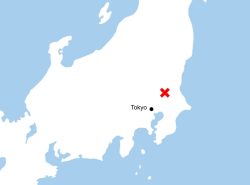
M4.9 Earthquake Hits Tokyo, Neighboring Prefectures
-

M7.5 Earthquake Hits Northern Japan; Tsunami Waves Observed in Hokkaido, Aomori and Iwate Prefectures
-

Israeli Tourists Refused Accommodation at Hotel in Japan’s Nagano Pref., Prompting Protest by Israeli Embassy and Probe by Prefecture
-

Tsukiji Market Urges Tourists to Avoid Visiting in Year-End
-
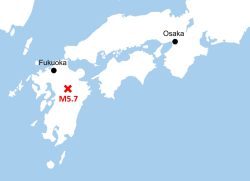
M5.7 Earthquake Hits Japan’s Kumamoto Pref., Measuring Upper 5 Intensity, No Tsunami Expected
JN ACCESS RANKING
-

Keidanren Chairman Yoshinobu Tsutsui Visits Kashiwazaki-Kariwa Nuclear Power Plant; Inspects New Emergency Safety System
-

Imports of Rare Earths from China Facing Delays, May Be Caused by Deterioration of Japan-China Relations
-

University of Tokyo Professor Discusses Japanese Economic Security in Interview Ahead of Forum
-

Japan Pulls out of Vietnam Nuclear Project, Complicating Hanoi’s Power Plans
-

Govt Aims to Expand NISA Program Lineup, Abolish Age Restriction

















